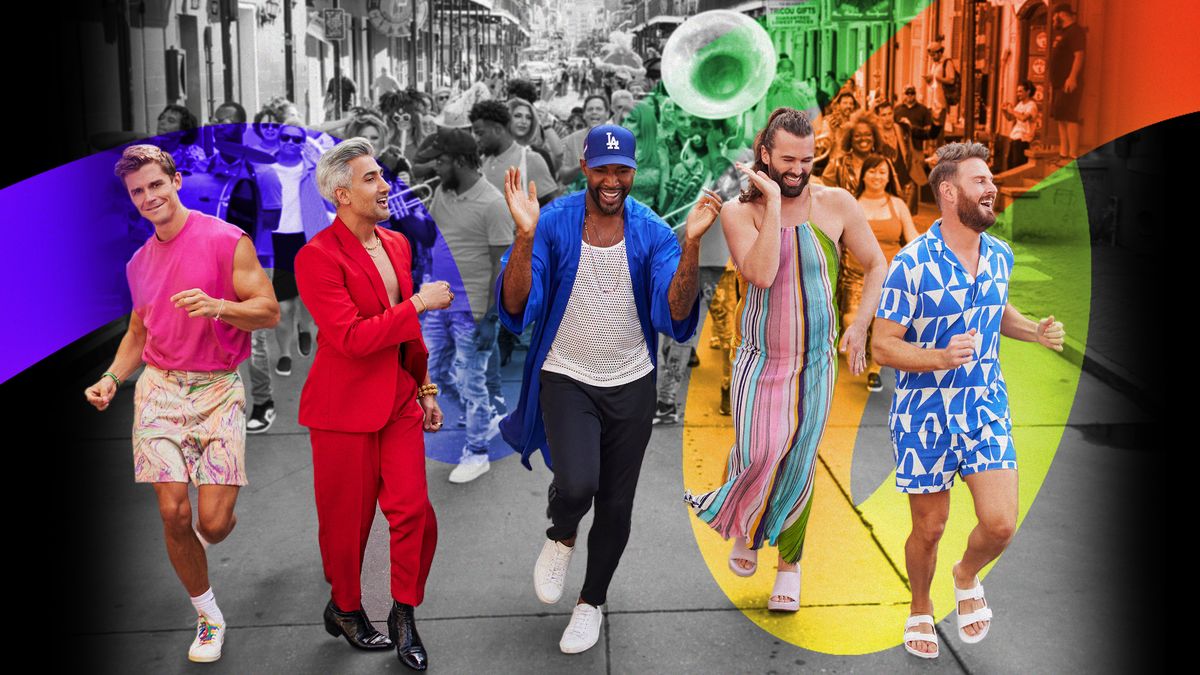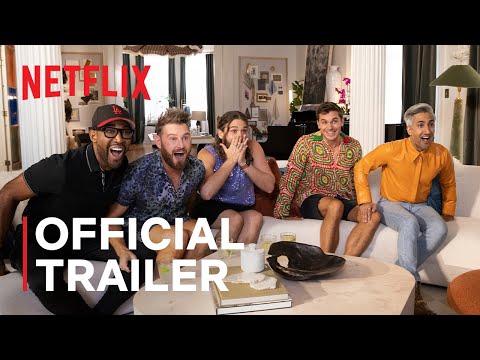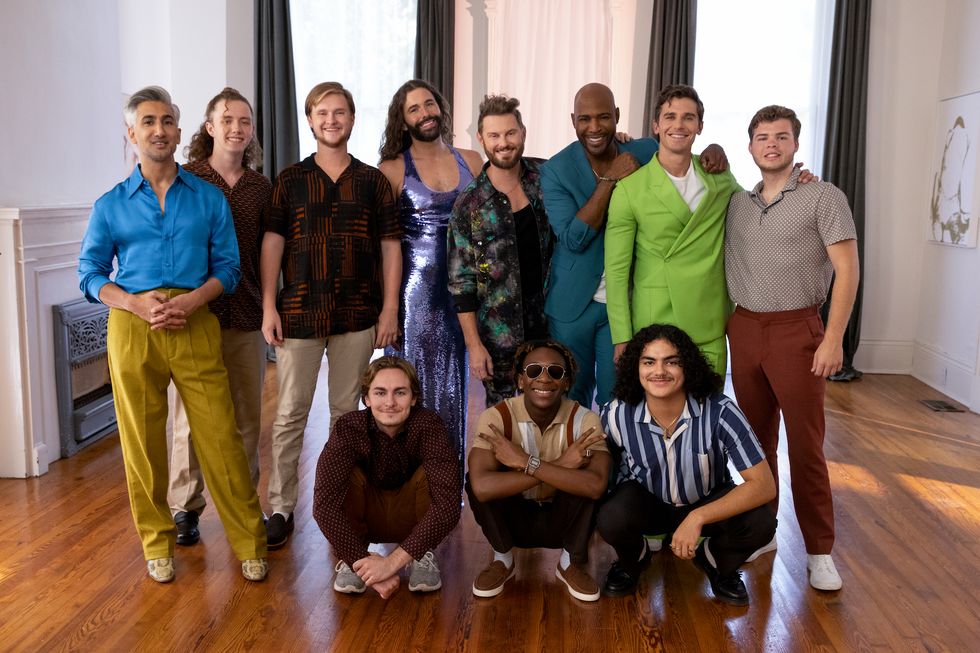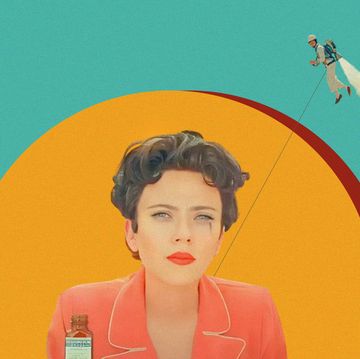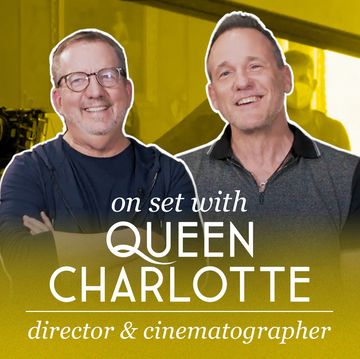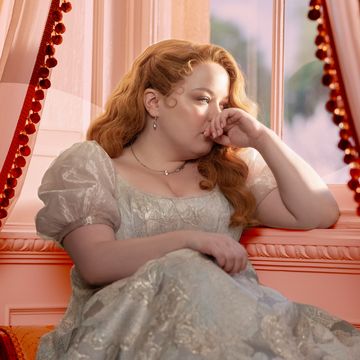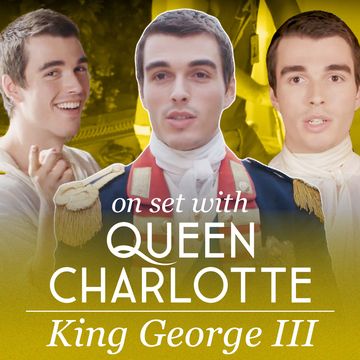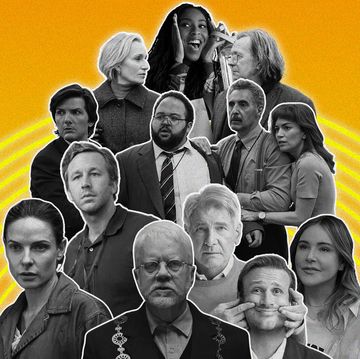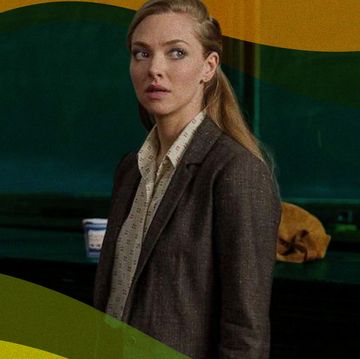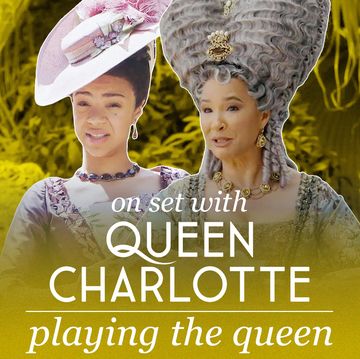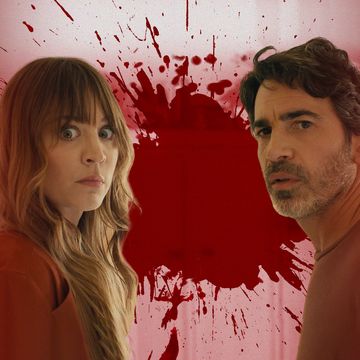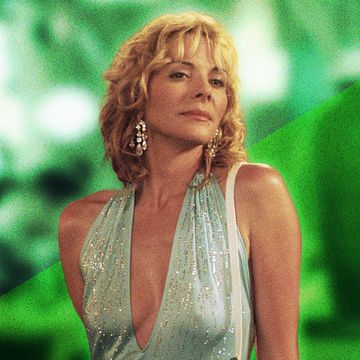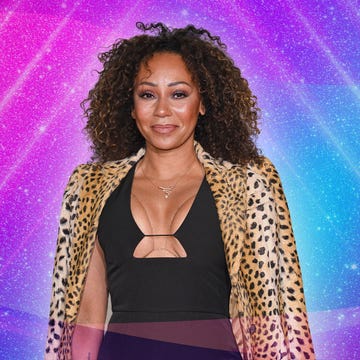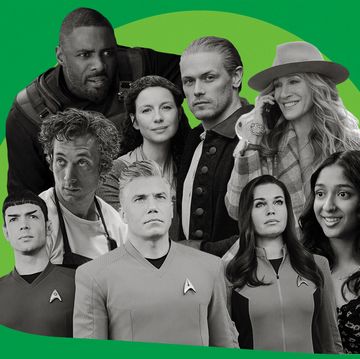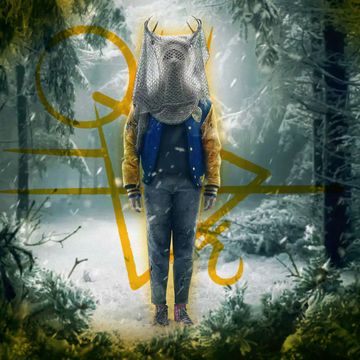“All things just keep getting better” goes the chorus of the theme to Queer Eye, implying an improvement of circumstance that leads to an endless realm of possibilities, perhaps, even, a skyward trajectory of joy. The Emmy-nominated Fab Five of the Netflix sensation — designer Bobby Berk, grooming expert Jonathan Van Ness, style expert Tan France, food expert Antoni Porowski, and culture expert Karamo Brown — are committed to bringing their “heroes,” or makeover subjects, so much more than a makeover, as the tagline says. They lead their heroes — who are all swimming upstream in some way — to full-scale, multidimensional life transformations, complete with vastly improved hair and skin regimes, stylish new wardrobes, new hands-on connections with food, incredible new home makeovers, and impactful emotional and psychological renovations, with heaps of infectious joy to boot.
Basically, you’d have to be dead inside to watch the heroes of Queer Eye find themselves without laughing out loud and/or shedding a tear or two (or several). All pleasure and no guilt, the experience of watching Queer Eye is like sitting down to a nourishing, delicious meal you didn’t know was also super-healthy. Over seven seasons, the show has provided us with a legit time-out from our mounting everyday stresses by giving us the chance to bear witness to the kind of guided self-realization so many of us long for but don’t feel we can achieve or afford.
Since season one premiered in 2018, the hosts have become heroes themselves, the show proving a fruitful springboard that has catapulted them on their own skyward trajectories: Van Ness hosts a podcast, Getting Curious, and launched JVN, a hair care line; Porowski has published a few cookbooks and owns a restaurant in New York’s West Village; designer France hosts Next in Fashion with supermodel Gigi Hadid and is a father expecting his second child; Berk runs a very successful design business, has a namesake product line, and has authored a design book; and Brown, a licensed social worker and experienced TV personality with a formative stint on The Real World: Philadelphia (where he was the first openly gay Black man on a reality show), hosts Karamo, his very own talk show.
The seventh season of Queer Eye finds our Fab Five in New Orleans, a city with an indomitable spirit that celebrates life through all its recent tragedies — and its heroes are no exception. The Fab Five recently hopped on a Zoom with Shondaland to dish about the brand-new season, toxic masculinity, and what it was like to shoot in New Orleans, with many laughs along the way.
VIVIAN MANNING-SCHAFFEL: Your seventh season, like every other, was so inspiring and wonderful. New Orleans in and of itself is inspiring and wonderful! What was shooting there like?
BOBBY BERK: I think shooting in New Orleans was really special. New Orleans is unlike any other city, not only in America but in the world. From the architecture to the food to the people, there’s just this vibe that you’re in another country in the best of ways. There’s so much energy and music, and it was very, very special.
VMS: And the food!
ANTONI POROWSKI: It’s a lot more than just beignets.
TAN FRANCE: I will say, people go on and on and on about the beignets, but there’s much better food.
JONATHAN VAN NESS: You guys are pronouncing it wrong. It’s “beign-YAS,” okay? Get it together!
VMS: The seafood and everything else — culturally, it’s such a beautiful cultural mix.
AP: Oh, my gosh, Cajun seafood!
VMS: You guys helped some incredible people this season. I fell in love with them all. You guys were doing the Goddess’ work in taking on the sweet young men in that fraternity house in episode one. What were some of the biggest challenges with shooting this season?
AP: We’ll start by saying — because you touched on the frat house — it’s no secret to anyone who watches this show that I’m very drawn to smells of all kinds: good, bad, everything in-between. I was overwhelmed.
VMS: You’re a food guy — of course, right?
AP: The smell in that frat house was the sourest thing I’ve ever experienced.
TF: I had to do my whole scene with [cat] poo on the floor in the room.
AP: Oh, the cat …
TF: That was the least favorite thing I’ve ever done on the show, I think.
KARAMO BROWN: But it was also a win! The transformation from those babies at the end, for me in particular in my scene, these young boys were holding in so much. Creating a space for them and giving them language to be able to talk about it, I just hope that every young man and every older guy that watches this show sees that and then feels like, “When I get my buddies, this is an opportunity for us to talk,” because you see them transform from all of us in the end, and that is pretty amazing.
JVN: When you think about how much suffering we’re all experiencing and what’s going on in the queer community, what’s going on just in our country, a lot of that comes down to, really when you boil it down, is toxic masculinity. It’s a lot of men in power who cannot sit with their feelings — don’t know how to sit with their feelings — and you, in real life, see these young men process what it is to put words to what they’re feeling and what they’re observing. That sounds like an easy thing, but if it was easy, we wouldn’t all need therapy!
TF: This is going to sound completely untrue, but I swear to God it’s true. I saw it on the news a few days ago. In Europe, they did a study that showed that over 60 percent of men would rather be electrocuted than have to sit in their own feelings for 15 minutes. Isn’t that insane?
VMS: That is alarming!
JVN: Where do you have to get electrocuted? Is it like everywhere, or …
AP: Or is it like putting a fork in a socket?
JVN: Is it like a massage?
VMS: The cultivation of empathy is the key piece there. Without emotional communication, you can’t have empathy.
AP: “Cultivation of empathy” — I’m going to use that. Thank you!
VMS: Take it and run with it! Karamo, you brought Speedy to this season because you saw him on TikTok. Are you guys usually on the lookout for potential heroes, or is he the exception to the rule?
TF: Tell me how you found him!
KB: This is a very, very, rare exception! But we’re glad that Speedy is there. I think Speedy, and bringing back our hero Wesley from a past season, was important because we always want to showcase individuals with different experiences and different abilities. I think his story is just beautiful. I think he is a courageous and vulnerable young man that is going to soar in life. His TikTok will blow up after this.
TF: The fact that we managed to get him at such a young age, I really, really believe that’s going to affect his entire life.
KB: Yes!
AP: Absolutely.
BB: Agree.
JVN: Model! I keep saying it, but I really want him to be a high fashion model, and I think it could happen. I really want talent scouts to see his freaking face because, honey, [he is] giving-angles-model gorgeous!
VMS: The world hangs off those cheekbones! As we all know, states aren’t shy about furthering their anti-LGBTQ agenda. In the face of eroding human rights, queer representation such as yours is more important than ever. What inspires you in the face of all of this, and have you had to confront negativity on a shoot, and how have you dealt with it?
BB: I think what keeps me going is just remembering that when I was younger, I didn’t have people like us on the screen. I didn’t have the thought that, like our song says, things could be better. I was alone, thinking I was the only one feeling the way I was feeling. So, what keeps me going is being that person for a new generation of kids who, sadly, the areas are limited, and they’re going backward. It’s becoming more anti-LGBTQI+, so that’s what keeps me going — being the person I wish I had when I was little.
AP: For me, it’s just every single hero is an opportunity to learn about their uniqueness and their own experience, whether I think back about Angel in Kansas City and Mary, who was incarcerated for 11 years. It’s always taking it down from a concept to that individual experience and all the emotions and the feelings that come with it. It truly never gets old.
Vivian Manning-Schaffel is a multifaceted storyteller whose work has been featured in The Cut, NBC News Better, Time Out New York, Medium, and The Week. Follow her on Twitter @soapboxdirty.
Get Shondaland directly in your inbox: SUBSCRIBE TODAY
